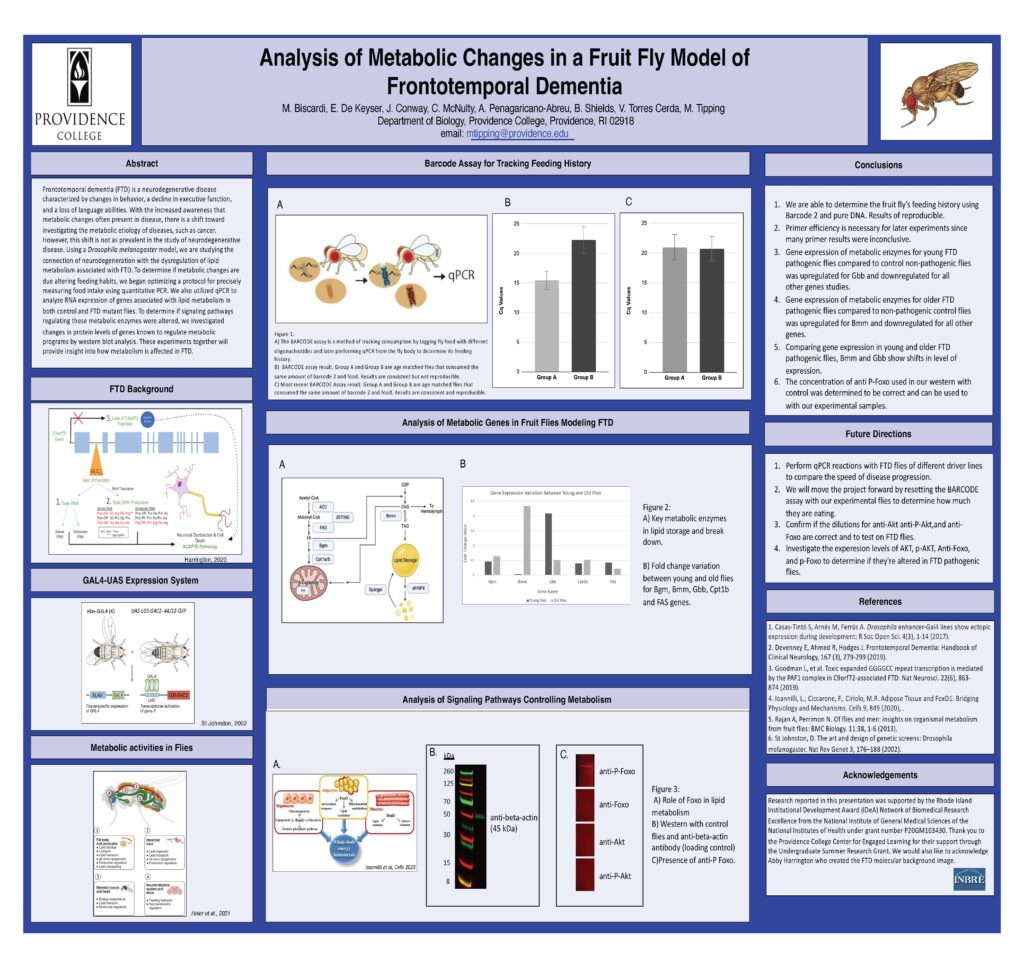Analysis of Metabolic Changes in a Fruit Fly Model of Frontotemporal Dementia
Braeden Shields ’26, Biology and Health Policy and Management major
Jacob Conway ’24, Biology major
Mia Biscardi ’24, Biology major
Eleonore De Keyser ’24, Biology major
Colin McNulty ’24, Biology major
Ana Penagaricano Abreu ’24, Biology major
Valentina Torres Cerda ’24, Biology major
Faculty Mentor: Dr. Marla Tipping
Poster Presentation: Wednesday, April 24, 11 a.m. – 12:30 p.m.
Frontotemporal dementia (FTD) is a neurodegenerative disease characterized by changes in behavior, a decline in executive function, and a loss of language abilities. With the increased awareness that metabolic changes often present in disease, there is a shift towardinvestigating the metabolic etiology of diseases, such as cancer. However, this shift is not as prevalent in the study of neurodegenerative disease. Using a Drosophila melanogaster model, we are studying the connection of neurodegeneration with the dysregulation of lipid metabolism associated with FTD. To determine if metabolic changes are due altering feeding habits, we began optimizing a protocol for precisely measuring food intake using quantitative PCR. We also utilized qPCR to analyze RNA expression of genes associated with lipid metabolism in both control and FTD mutant flies. To determine if signaling pathways regulating these metabolic enzymes were altered, we investigated changes in protein levels of genes known to regulate metabolic programs by western blot analysis. These experiments together will
provide insight into how metabolism is affected in FTD.






